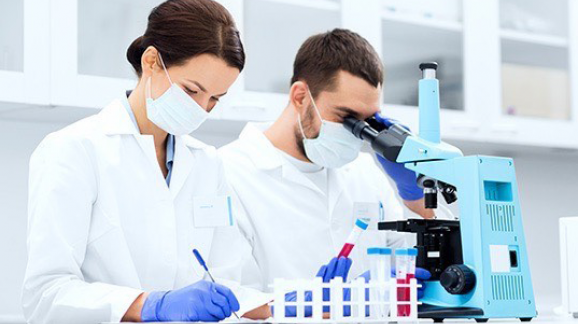Medicines and research
New quality medicine, developed using new technologies – genetic engineering and analysis, individual genotype analysis, and scanning of genetic changes in oncological diseases.
The discovery and development of new therapies in order to reduce the suffering of patients, prolong and improve the quality of their lives, require a lot of time, human resources, collaboration between sectors, and limitless experimentation.
Innovative medicines around the world have led to significant progress in the treatment of complex and extremely costly diseases. Innovative medicine is not directly developed in Lithuania. However, specialists in our country are involved in the development process, conducting clinical trials for new original medicines in Lithuania.

A clinical trial is research carried out on humans to answer questions related to advanced treatments and to find more effective and safer ways of treating or improving people’s health.
Each clinical trial is performed by a specialist with a doctor’s degree. They are called the principal investigator. The team carrying out the trial may include doctors, nurses, and other healthcare professionals.
Clinical trials may be supported or funded by pharmaceutical companies, academic medical centres, volunteer groups, or other organisations. Doctors, healthcare providers, and others may also fund a clinical trial.
In accordance with the principles of Good Clinical Practice, a clinical trial is initiated only if the expected benefit outweighs the potential risk. A clinical trial is conducted on the principle that the interests of the patient always take precedence over the interests of science and society.
If there is no treatment for your disease or if you have not responded to your standard treatment, you may consider taking part in a clinical trial.
For more information on clinical trials, see FAQ
With the increasing risk of falsified medicines both in Lithuania and around the world, the Falsified Medicines Directive (Directive 2011/62/EU of the European Parliament and of the Council) was adopted, which provides for measures to prevent illegal medicines from entering our markets.
The Directive provides for the introduction of measures to verify the authenticity of medicinal products and to improve the quality of their ingredients throughout Europe. These implemented measures will facilitate the identification of falsified medicines, ensure greater control, and contribute to the overall protection of public health in the EU.
In Lithuania, the National Medicines Verification Organization (NMVO) is responsible for the implementation of the Falsified Medicines Directive. Its main objective is to create and administer a national data repository designed to verify the authenticity of or deactivate the unique identifiers of prescription medicines provided in Lithuania.
The implementation of the Falsified Medicines Directive in EU countries is ensured by the European Medicines Verification Organisation (EMVO), established in early 2015 and bringing together all the stakeholders involved in the implementation of the Falsified Medicines Directive and ensuring the development of a common system of protection against the entry of illegal medicines into the legal supply chain.
For more information: European Medicines Verification Organisation (EMVO) and National Medicines Verification Organization (NMVO)
